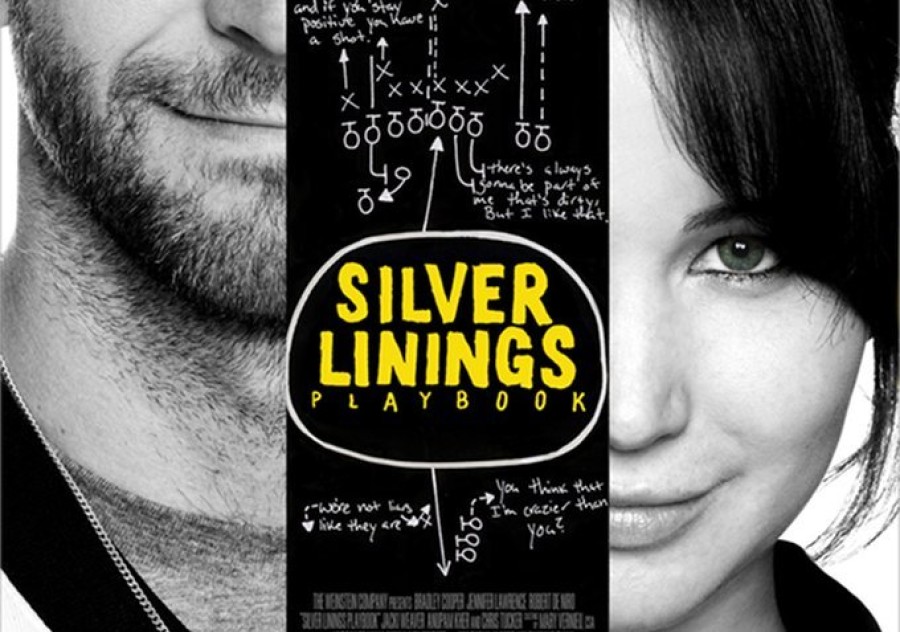Best Picture breakdowns: ‘Silver Linings Playbook’ review
By Jim DeRogatis

Best Picture breakdowns: ‘Silver Linings Playbook’ review
By Jim DeRogatis
Keep that in mind when I ask: Silver Linings Playbook as the Best Picture of 2012? And the only film among this year’s nominees to additionally garner nods for best actor (Cooper), best actress (Jennifer Lawrence), best supporting actor (Robert De Niro), best supporting actress (Jacki Weaver) and best director (David O. Russell)?
Really?
By no means is Russell’s adaptation of Matthew Quick’s 2008 debut novel a bad film. Like the best of those in this proudly quirky writer-director’s canon, Spanking the Monkey (1994) and Three Kings (1999), it stays on just the right side of self-satisfied irony, avoiding the forced eccentricity and hipster smugness of his more annoying efforts, including Flirting with Disaster in ’96 and I ♥ Huckabees in 2004.
Yet, at its core, a slightly slicker-than-usual Lifetime movie is all that Silver Linings Playbook really is. And that might be exactly the reason why it’s gotten so much love from the Academy.
I’ve already heard two commentators on Public Radio crediting the bounty of nominations to the movie’s generally sympathetic and not-overly-clichéd portraits of the central characters, Pat (Cooper), who suffers from bipolar disorder, and Tiffany (Lawrence), whose exact mental malady never is named, but who clearly isn’t quite right in the head (to use an unsympathetic and clichéd description, but no offense intended).
My wife, who read and somewhat enjoyed the novel, was disappointed that Russell made so much of the ballroom dancing bringing these troubled misfits together; it played a much smaller role in their romance in the book, and seemed like an obvious bid to tap into the Dancing With the Stars fan base at the box office. Even more disturbing to her was that the director or the producers made the typical cast-a-hot-young-Hollywood-starlet move of tapping Lawrence, fresh off The Hunger Games, to play Tiffany, when the Tiffany character in the book actually is much older than Pat.
One thinks of the much more appropriate pairing of William Hurt and Geena Davis in the 1988 film The Accidental Tourist. The age discrepancy there was jarring to those who’d read that book, but the two troubled characters were much better cast and much more believable as misfits who don’t fit in anywhere else turning to one another to be alone together.
Here, Lawrence is 22 and Cooper is 38. And aside from sharing an encyclopedic knowledge of psychotropic drugs, a general disdain for the mental health profession and an abiding dislike for social conformity, it’s hard to accept that there’s anything that brings these two together.
Believable or not as Cooper’s love interest, Lawrence does smart, sexy and screwed-up well. And Cooper manages to make the narcissism that’s been so unlikable in much of his other work seem like a natural part of his character here, while he delivers his non-stop spew of dialogue (also part of his character’s disorder) so quickly that even the most obnoxious lines fly by too fast to become grating. But that’s hardly lavish praise.
Meanwhile, for his part, De Niro just turns up the intensity a bit from the character he plays in the Meet the Fockers franchise to portray Pat’s football-obsessed, possibly OCD dad. And I cannot for the life of me remember a single thing to distinguish Weaver as the recently released mental patient’s mom, much less mark her as a candidate for best supporting actress.
At the risk of throwing a tantrum to rival the one Pat launches into upon hearing Stevie Wonder’s “My Cherie Amour” (the song was playing when he discovered his wife cheating on him, triggering the breakdown that led to his stint in the mental ward), the Academy’s fondness for Russell’s film not only is inexplicable based on the modest charms of the movie itself, but it’s absolutely infuriating in context. We’re supposed to accept all of these honors for the quirky Russell’s Silver Linings Playbook when the Academy almost completely shuts out the quirky Wes Anderson’s vastly superior Moonrise Kingdom? Arrggghhhh!
Ah, well: Maybe next year, Prosecuting Casey Anthony will get the love it deserves.
